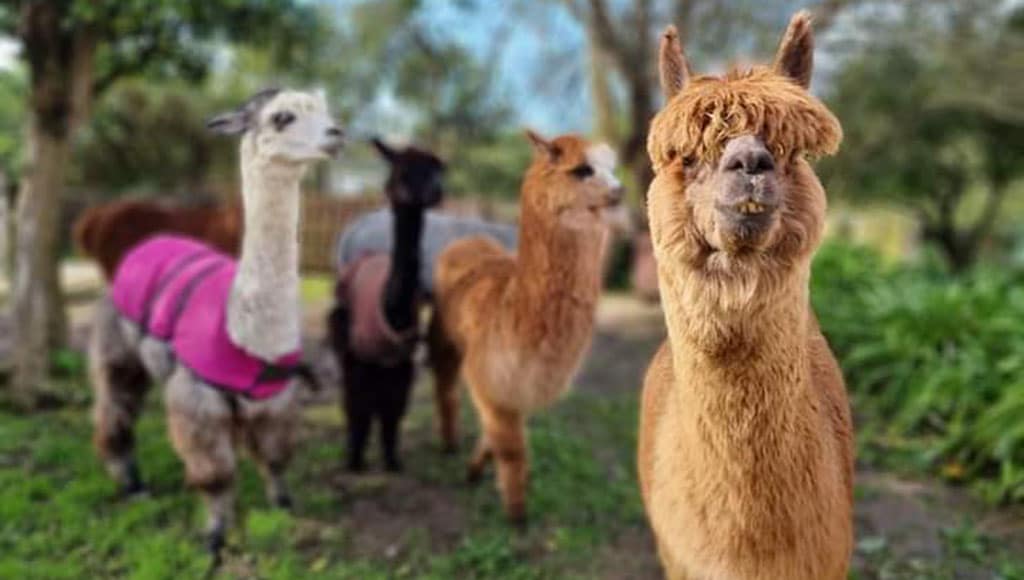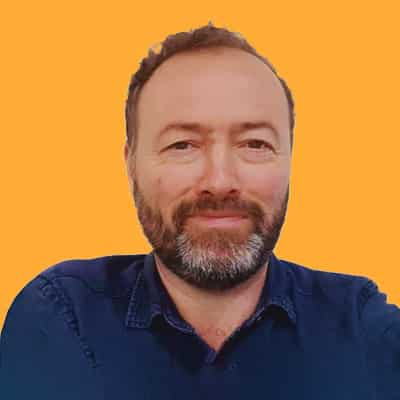When I first thought about moving to Portugal, it was to the interior, creating a new life away from the rat race, renovating a neglected property as well as myself in the process. Years later, I’m not exactly a rat, but that rural idyll gave way to a somewhat more urban existence than I had in mind, albeit with occasional forays into the good life. We’ve grown some of our own food, kept chickens and found a happy place with fresh air, on the edge of a small town.
Whilst I know I’d now be happy to see out the rest of my days in this pretty part of the world and Portugal, blessed as I clearly am to live here on the Silver Coast. From time to time, however, I can still hear the distant call of the wild, and that instinct to head for the hills stirs within me.
One such occasion was talking recently with two regular guests on the Good Morning Portugal! Show: Em ‘Mamabear’ McGowan, who lives in Central Portugal and Lisa Vella-Gatt, who founded and runs the Monte Frio Alpaca Farm near Aveiro. The delightful and robust sound of birdsong, even down the line, from Em’s near-Fundão bolthole, and the story Lisa shared about her alpaca-based mission, re-stimulated that call to the countryside.
Long before the current wave of interest in Portugal, Lisa, who already had family in the Algarve, and grandparents who’d hosted Erasmus students giving her ‘an affinity with the Portuguese’, decided to head here with three young children.
Coming from the textile world and with a passion for wool since being a teenager, she wanted to start an ecological, ‘permaculture’-based farm, and a chance encounter with an article about alpacas in a premature baby unit, had this inspiringly adventurous woman bring six of the intriguing creatures with her.

“I had no idea about farming, especially in a foreign country,” she told me, setting out from quite-the-contrast London, “and with three small children, it was six years of intense learning!”
Newly-imported around that time into the UK, alpacas also looked like a good fit for Portugal given their natural ability to adapt to extreme changes of temperature in their native South America.
“It was a big, big learning curve, on the top of a mountain,” recalled Lisa, the location from which her now well-established project takes its name. Since then, and with a move to Aveiro under her, no doubt, handcrafted belt, she has worked with a lot of Portuguese veterinary hospitals, colleges and even the ministry to educate locals about these fascinating animals.
Not just the ‘Alpaca Lady’ and all-round alpaca ambassador, part of her mission is to also promote sustainable and diverse farming, allowing people to live in the countryside and make a living. This is music to my ears with my fondness for rural tradition and life in Portugal, yet at the same time well aware of its seemingly terminal decline.
I’ve heard figures that suggest 60% of the Portuguese population lives in the two major cities and on the coast, with the trends of urbanisation and globalisation showing no signs of slowing down. Basically, the Portuguese are leaving the countryside because they can’t make a living there, regardless of personal preferences, desires and family tradition.
“I know young Portuguese people who really want to go back to the villages. They really would like to go back to their roots and do something that feels more akin to their principles in life,” Lisa shared, underlining what to me is an increasingly sad state of affairs.
“Something I’m passionate about is that we do have to make a rural economy viable and keep it alive,” she added, explaining how her alpacas have offered a model of rural livelihood and sustainability, with tangible wool-based products, educational potential and touristic appeal.
“My philosophy is to live by example and give people the opportunity to taste it, giving them a very genuine picture of what’s involved,” added this hands-on visionary who talks my kind of language, whilst keen not to ‘paint a fluffy picture’.

“I’ve been through quite a few trials. It’s been very challenging, but there are a lot of positives along the way. You experience a profound amount of suffering that you can utilise positively, for others, and for your own self-growth.”
In talking to Lisa, and hearing of this husbandry school of hard knocks, I remembered my own urge to be something of a farmer. Yet, honestly, I was quietly comforted that fate had prevented me from renovating a pile of rocks in central Portugal, risking personal ruin in the process. I fear far too many people learn the hard way in a remote part of Portugal, as rural romance gives way to the hard and harsh reality of swimming against the tides of progress that pushes them ever closer to the city.
From a less personal perspective, what can be done to preserve Portugal’s traditional and rural ways that – notwithstanding the hard work and persistence involved – make so much sense for a society plagued by mental health disorders and long-term environmental concerns, for which poverty-stricken city-living is certainly no cure?
“I’m for the small farms, self-management and governance, and promoting rural economies with the principles of permaculture,” says Lisa, potentially offering some sort of light at the end of my thought tunnel, “where you service your immediate surroundings and gradually grow from there.”
Makes sense to me. Clearly there’s no shortage of work. There’s no shortage of people. So, I put it to Lisa that what might be missing is just the wisdom and the will to change things. That, and putting the resources in the right place, understanding that this would be a far more useful way for way more human beings to live their lives.
“It’s about creating a demand,” she suggested by way of an answer.
Clearly, how we value things dictates the direction we go in, a point illustrated with Lisa’s literally home-spun insight, based on her hard-won and passion-driven experience:
“I make alpaca socks and they are not cheap. They’re not excessively expensive, but they can’t compete with a mass-produced sock. But you know the history, the exact animal that sock came from. You know the spinner, which is myself, and the maker of the sock. And that sock is not something you’re going to throw away tomorrow when it gets a hole,” she brilliantly elucidated.
In her world of different and arguably world-improving and life-affirming values, Lisa will be offering you some yarn, and then showing you a video of how to darn your socks!
At Monte Frio Farm, those socks will stay with you for a long time, with a story attached, that has you attached to them. “And if we want to make them valuable in the big scale of things, then we need to make some changes as to where we put our money,” says this farmer of a different kind of future.
“If we all put our money where our heart was, then we might elevate and change that equation quite rapidly,” concludes Lisa, who has convinced me that we don’t all need to move to the country to create and sustain the kind of country life we might like to see persist and regenerate in Portugal.
“There is plenty of work available in rural Portugal and, at present, there are people skilled enough to do jobs that last a lifetime, but those skills are not valued correctly,” added morning show viewer Peter Bleach, also moved by Lisa’s words.
“Portugal is in the precarious position of losing the very skills that have built its beautiful schist villages, paved its calçada roads and created marvellous structures. These quality tradesmen who have spent decades perfecting their craft are the very people we should encourage to pass on skills, but funding is lacking.”
I am inspired by Lisa. I agree with Peter. And would add to their calls for creating new demand and seeking the necessary funding. I would also suggest that those thinking this way need to have their voices heard and need to join together in being the change as well as asking for it. If we don’t act as well as see, a probable and dismal future is inevitable. The Portuguese interior is a crystal ball with an uncomfortable message for mankind, which we can transform, if sufficiently awakened by what it is telling us.
Lisa and Monte Frio Alpaca Farm can be found on Facebook as ‘Monte Frio Alpacas’ or call 926 179 255.
Carl Munson is host of the Good Morning Portugal! show every weekday on YouTube and creator of www.learnaboutportugal.com, where you can learn something new about Portugal every day!
















